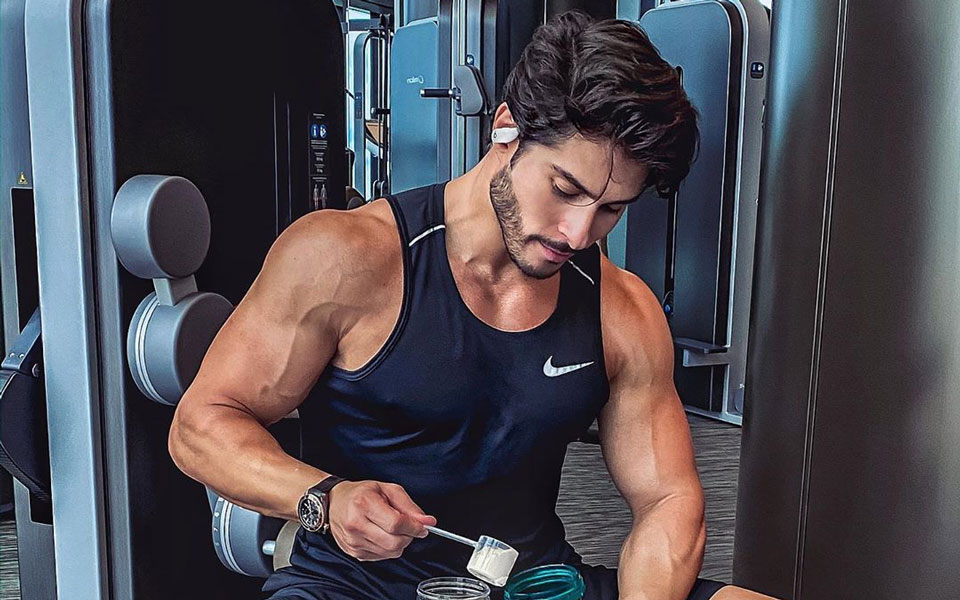The sports nutrition market is one of the largest in the health and fitness industry. It was valued at US$50.84 billion in 2018 and is expected to rise to US$81.5 billion by 2023. Protein shakes are one of the biggest contributors to that value and it’s easy to see why. Designed to aid your fitness goals, protein shakes provide a convenient way to get the supplements your body needs to build muscle.
But are they the last word in fitness or can you still reach your goals without buying into a crowded market?
Fitness expert Max Lugavere has whey-ed in on the argument to dispel any myths surrounding protein shakes and tell us once and for all if they’re worth investing in. In a recent Instagram post, the nutritionist is quick to say that “not everyone needs protein shakes”. He admits their main benefit is convenience but adds that they genuinely are “a low-calorie way of upping your protein intake”.
While we’re all told protein = muscle, Max goes a bit deeper, explaining that protein is “satiating, and it helps build and maintain muscle mass.”
“It provides pre-cursor molecules for detox compounds your body makes like glutathione.” Time for a quick biology lesson. Glutathione is an antioxidant found in every cell in the body that helps support your immune system, makes DNA and helps the liver and gallbladder deal with fats. It’s pretty important.
View this post on Instagram
Max says that if you strength train, then as a general rule you should be consuming 0.7 grams of protein per pound of lean bodyweight. This isn’t just a figure he’s plucked out of thin air, but rather the optimal dose studies have found maximizes your efforts in the gym. As a simple way of calculating how much protein is right for you, Max says “if you’re relatively lean, use your weight. If you aren’t, use your goal weight.”
But does that protein have to come from shakes? According to Max, not necessarily: “If you can achieve this daily intake with food, then, by all means, do it! There’s really no evidence that protein shakes are superior to real food protein.”
However, he goes on to say that there are differences between whey and veggie protein powders and this is where the argument of food vs. powder can become a little blurred.
If you can’t have dairy products, then you should use whey protein isolate as it “has virtually no lactose or casein”. Whey protein meanwhile is Max’s go-to choice as it is a “much cleaner option, FAR less processed and is very effective thanks to having an abundance of BCAAs, which are important for muscle building/maintenance.”
Veggie proteins can contain heavy metals, and powders made with rice protein can even contain trace quantities of arsenic.
If you decide that protein powders are for you, then you don’t need to buy into the expensive, grass-fed options (if all you care about is your health, anyway). Max says the only real difference between the two is the grass-fed option is “more likely supportive of a humane and sustainable farming system.”
The main thing to steer clear of when buying a powder, according to Max, is to make sure it’s “free of junk sweeteners like Sucralose or sweetened with stevia.”
So, by all means, grab yourself a shaker and join the rest of the gym junkie clique, just make sure the powder you buy is of good quality.
